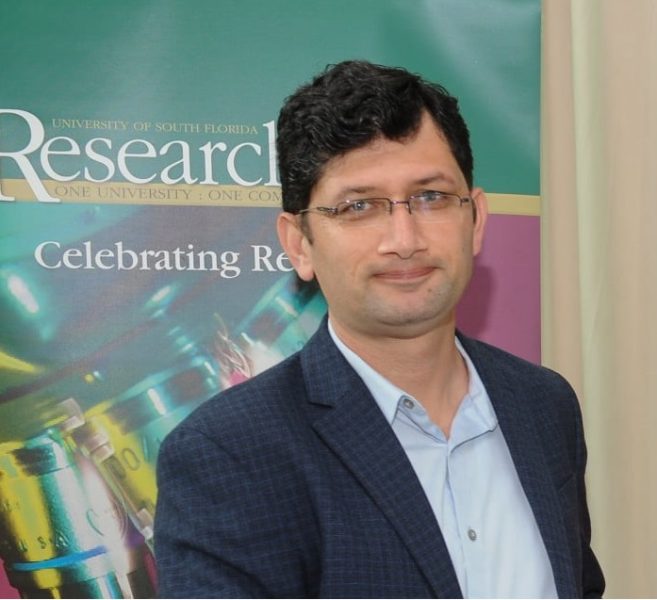
Spotlight on Parveen Bazard, PhD
Research Assistant Professor, University of South Florida
Recipient of AHRF’s 2023 Richard G. Muench Chairman’s Grant
Hearing research involves many disciplines, such as genetics, biochemistry, and audiology. Parveen Bazard entered the field through nano-science and laser technology.
After Parveen Bazard received his master’s degree in chemical engineering, he looked for an opportunity to contribute to health care applications. The answer came when he was recruited to work on a project with Robert Frisina, a well-known hearing scientist at the University of South Florida. Bazard explains, “They were looking for a person with a background in nano-science and laser technology who they could train in hearing science.”
He added, “My PhD work focused on trying to use those lasers and those nano particles for next-generation cochlear implants. After that, I expanded specifically into the hearing field.”
A Biotherapy for age-related hearing loss
Age-related hearing loss has been a recent emphasis. “It has far-reaching implications in people’s health, that goes beyond hearing,” Bazard noted. “For instance, once you lose communication in your life, you start living in isolation. There is an economic burden, because you lose productivity.” And age-related hearing loss potentially “will affect 500 million people world-wide by 2030.”
Bazard’s current project is an extension of his work with anti-inflammatory hormone therapies. He explained, “Whether inflammation causes aging, or aging causes inflammation hasn’t been determined. But inflammation is certainly linked with aging.” He noted, “We had some partial successes, but there were challenges in taking the therapies to market. For this project, I was specifically looking for some compounds that wouldn’t face difficulties going from lab to clinic.”
In January 2023, AHRF awarded Bazard its prestigious Richard G. Muench Chairman’s Grant. With the help of co-investigators Robert Frisina, PhD, and Bo Ding, PhD, Bazard is using the funding to investigate L-ergothioneine (EGT), a naturally-occurring amino acid that has both antioxidant and anti-inflammatory properties and which has been found to be beneficial in other diseases. This compound is available over the counter and can be taken orally. Bazard noted this compound “is only taken through dietary supplements. A top source is mushrooms, especially oyster mushrooms.” There are no known side effects related to taking EGT.
His study is investigating EGT’s effect on the aging auditory system. By administering EGT to aging mice in conjunction with exercise, he and his team are working to understand the underlying biological mechanisms, and ideally find a minimum dose that can provide hearing protection in mice. “One thing that’s emerging from this work is that we need to target more than one mechanism to ease hearing loss. My hypothesis is that if we start mixing this therapeutic compound with non-chemical therapies, it will allow us to reduce its dose. For instance, if we combine this therapy with exercise, we might see the same impact with a lower dose.”
What’s Next
Bazard hopes to see this study expand to more animal models and then proceed to clinical trials. Eventually he would like to turn his attention to cochlear implants, new diagnostic tools, and imaging techniques.
